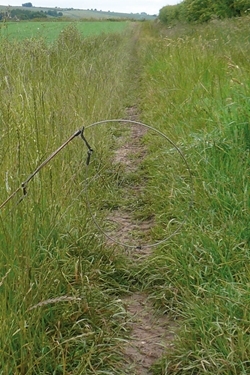 The GWCT’s Head of Education and Advisor for Wales and Northwest England, Matt Goodall, was invited on Jeremy Vine’s BBC Radio 2 show on 17 October to explain why the ban on all types of snare in Wales could be bad news for wildlife in the country. He was up against Shahinoor Alom, League Against Cruel Sports’ Public Affairs Officer in Wales.
The GWCT’s Head of Education and Advisor for Wales and Northwest England, Matt Goodall, was invited on Jeremy Vine’s BBC Radio 2 show on 17 October to explain why the ban on all types of snare in Wales could be bad news for wildlife in the country. He was up against Shahinoor Alom, League Against Cruel Sports’ Public Affairs Officer in Wales.
After Matt highlighted how curlew, a red-listed Section 7 species threatened with local extinction in Wales, will suffer without this vital tool, the League spokesperson said we should “celebrate that so many animals in the world will now be safe because snares are no more”, calling the devices “indiscriminate, barbaric and cruel”. This set the tone for the discussion, as Matt had to deal with a great deal of misinformation. “It’s been found that there’s no such thing as a humane cable restraint,” remarked Mr Alom, dismissing the fact that large-scale trials have shown the GWCT’s pioneered humane cable restraint (HCR) to surpass the standards set in the Agreement on International Humane Trapping Standards (AIHTS). Matt was very quick to challenge the inaccuracy of this statement.
It was interesting to hear the spokesperson call for other forms of fox control. Matt made it clear that shooting alone has its own limitations. High vegetation, topography and weather such as hill fog can all limit shooting opportunities, and HCRs allow for efficient, effective fox control in all habitats at all times of year.
“It might be a historic moment for curlew in a bad way” – Jeremy Vine
There were also repeated claims that Welsh ministers voted unanimously to ban all types of snare, including the HCR. Despite it being a matter of public record that this wasn’t the case (27% voted for the amendment to allow HCRs to be licensed), both Matt and Jeremy Vine had to intervene to question the claim.
As Matt rightly pointed out, we found in studies where you do use devices that you can increase your fledging success of curlew from about 15% of pairs fledging young without using predation management, to over 51%. That’s enough to save that population. While some might celebrate, we worry about what fate will befall not only the curlew in Wales, but other ground-nesting birds.
Listen to the interview here.